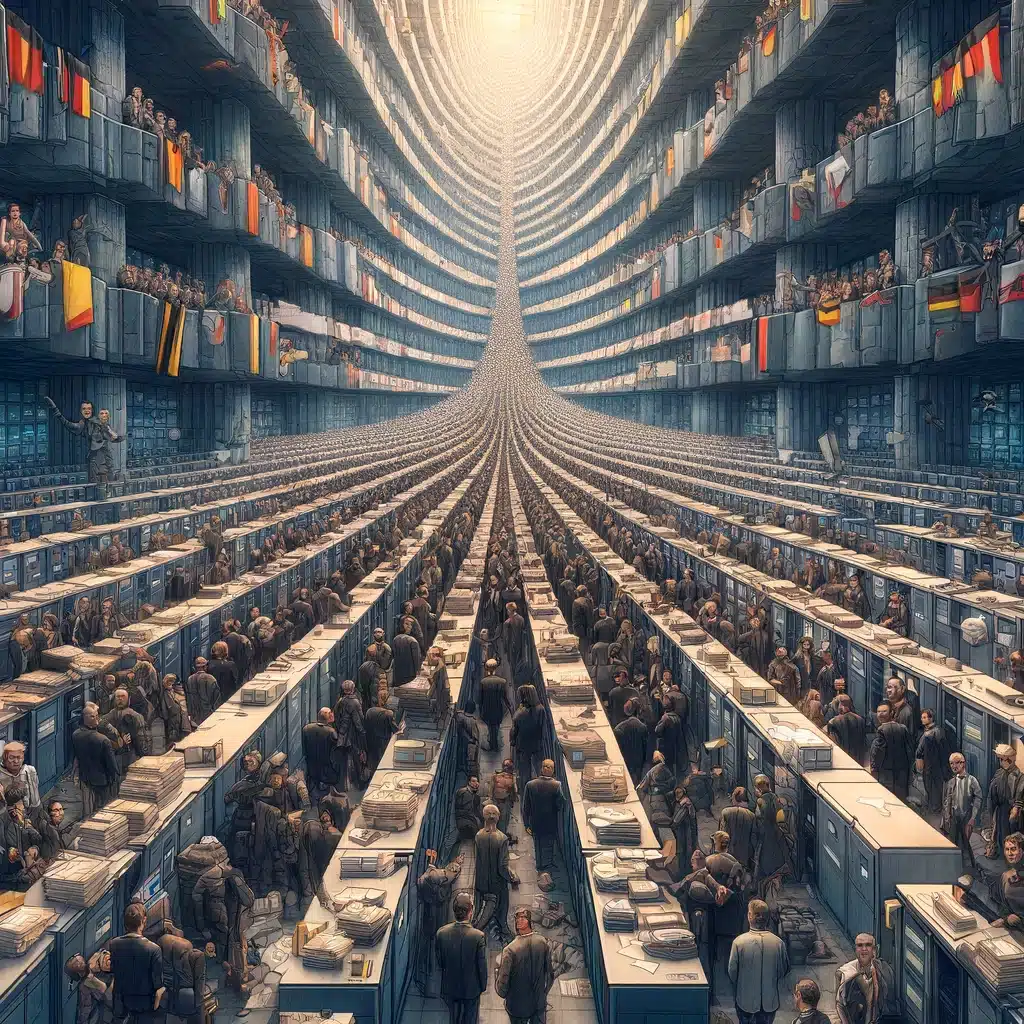The new German skilled worker immigration law: A farce in several acts
If the new German skilled worker immigration law were a theater performance, then it would certainly be a comedy, but one that involuntarily drifts into tragedy. One could almost think that the law was the result of a brainstorming session that took place at an after-work party in a Berlin ministry - ambitious in theory, but amateurish in practice.

Let's start with the highlight: In addition to the digital wizards - the computer scientists - veterinarians are now also listed as shortage professions. A remarkable advance, one would think, which should make access easier for foreign veterinarians. Regulations have been relaxed; Where B2 level in German was once required, a simple A1, supplemented by B2 in English, is now sufficient. On paper, this sounds like a modern, cosmopolitan policy that wants to combat the shortage of skilled workers in a targeted manner.
But, as the saying goes: the devil is in the details – or in this case in the German bureaucracy. If you contact the regional council, which decides on approval, full of hope, the bureaucratic pandemonium quickly becomes apparent. The regional council refers to a lex specialis that is superior to the Skilled Immigration Act and does not contain these simplified conditions. This means we're back to square one, while the regional council remains in the right with a shrug of the shoulders. One might think that the law was drawn up in a late-night session with a hot needle, without consulting the actual implementing authorities.
And even once you have left this Kafkaesque nightmare behind you, the next bureaucratic obstacle course awaits: the applicant country's embassy, the employment agency, the local immigration office - each authority with its own carefully guarded rules and procedures. The solution to this problem was the introduction of the accelerated process, an invention as German as sauerkraut. For a fee of EUR 411, everything should be bundled at the immigration office, an approach that almost sounds too good to be true.
And actually, it's too good to be true. Because if the employee responsible only holds a half-position and her only colleague has been rationalized away, the “accelerated process” turns into a marathon faster than you can say “efficiency”. Weeks turn into months, and what was intended as a service-oriented solution mutates into a synonym for administrative inertia.
At the end of the day, the employer is not only left without the urgently needed skilled workers, but also with a deep mistrust of a policy that promises a lot and delivers little. The message being sent here is clear: Germany may have once been a leading industrial nation, but when it comes to integrating international skilled workers, it is more like a developing country.
The new skilled worker immigration law is therefore less a milestone on the way to a more open society than a monument to inadequacy, a testimony to how far reality can be from political rhetoric. A bitter joke that no one laughs at - least of all those who try to find their way to Germany through this thicket.
My opinion: The new skilled worker immigration law – a symbol of the failure of the traffic light coalition
After 16 years of what is often referred to as the “era of stagnation” under Angela Merkel, the traffic light coalition came along with the promise of bringing a breath of fresh air into German politics. But the new skilled worker immigration law turns out to be nothing more than a gentle breeze that barely moves the dusty files in the offices.
The law, which was presumably intended to simplify the immigration of highly qualified specialists and thus counteract the shortage of skilled workers in Germany, instead reveals the deep gap between ambitious politics and sobering reality. It is as if the traffic light coalition had set itself the goal of not ending Merkel's policy of sitting it out, but rather continuing it in a new, dynamic package. A dynamic standstill, if you will.
The law embodies a bureaucratic odyssey riddled with absurdities: veterinarians , who are now considered to be in shortage professions, are supposed to benefit from relaxed language requirements, but upon closer inspection this promise turns out to be a deceptive mirage. Reality is a bureaucratic maze in which the left hand does not know what the right hand is doing and in which supposed relief is counteracted by other regulations.
The accelerated procedure, which is more like a leisurely stroll, and the fact that the responsible employees in the authorities are either overloaded or not available add a tragicomic note to the whole thing. The irony is that all of this is happening in a country that likes to think of itself as a land of poets, thinkers and engineers. But what use are the brightest minds if they have to capitulate to a mountain of paperwork?
In short, the new skilled worker immigration law is a prime example of the traffic light coalition's failure to effectively differentiate itself from the years of stagnation under Merkel. Instead of facilitating the urgently needed immigration of skilled workers, we are dealing with another chapter in the history of German bureaucracy, which is almost admirable in its inability to deliver practical solutions. A bitter joke that unfortunately comes at the expense of the German economy and the many qualified specialists who have to look for happiness elsewhere.
Your Sven Jan Arndt, Co-CEO doc4pets GmbH
